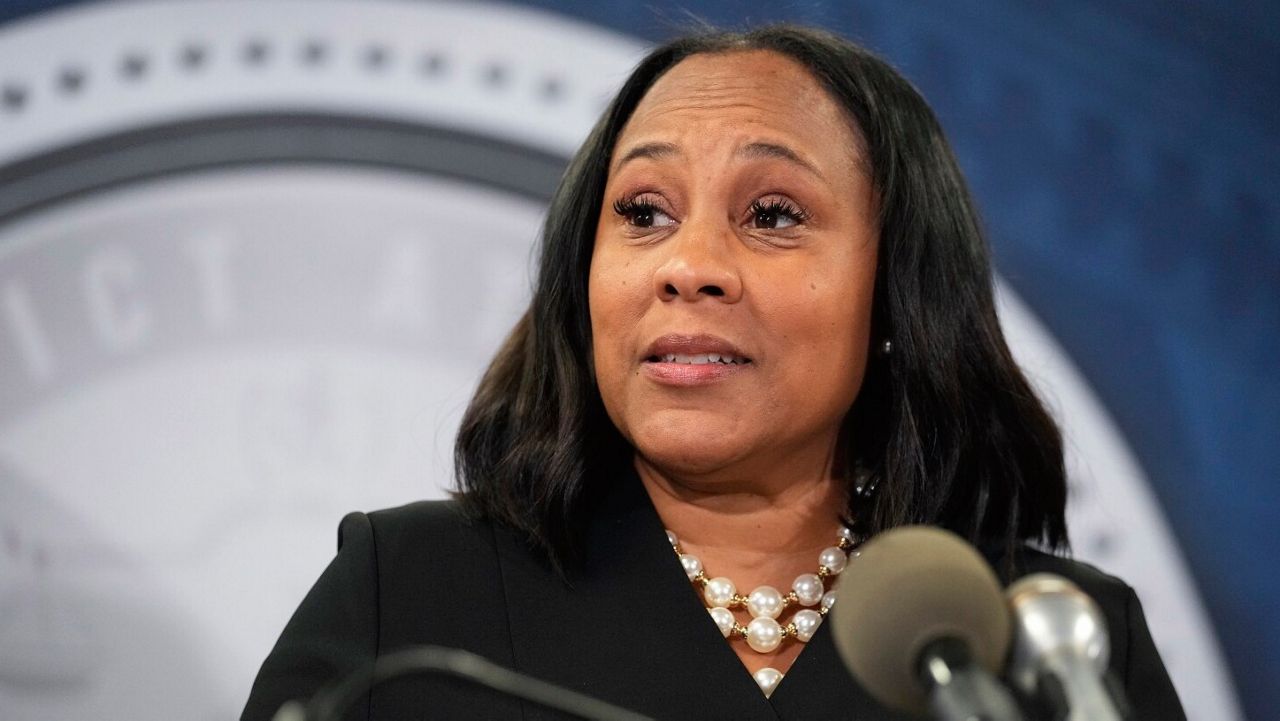Fulton County, Georgia, District Attorney Fani Willis refused Wednesday to provide House Judiciary Committee Chairman Jim Jordan, R-Ohio, with additional information about her investigation into former President Donald Trump and 18 others charged with trying to overturn the results of the 2020 presidential election.
What You Need To Know
- Fulton County, Georgia, District Attorney Fani Willis refused Wednesday to provide House Judiciary Committee Chairman Jim Jordan, R-Ohio, with additional information about her investigation into former President Donald Trump and 18 others charged with trying to overturn the results of the 2020 presidential election
- For the second time in a little more than a month, Willis responded to Jordan’s requests with a scathing letter
- Willis wrote that Jordan is either ignorant about the law or is trying to interfere in a state criminal case
- Jordan says Willis' investigation is inbounds for congressional oversight because federal lawmakers “have a strong legislative interest in ensuring that popularly elected local prosecutors do not misuse their law-enforcement authority to target federal officials for political reasons"
For the second time in a little more than a month, Willis responded to Jordan’s requests with a scathing letter, which was obtained and published online by CNN.
“A charitable explanation of your correspondence is that you are ignorant of the United States and Georgia Constitutions and codes,” Willis wrote. “A more troubling explanation is that you are abusing your authority as Chairman of the Committee on the Judiciary to attempt to obstruct and interfere with a Georgia criminal prosecution.”
Willis called Jordan’s inquiry into her investigation meritless.
“As I have explained, your requests implicate significant, well recognized confidentiality interests related to an ongoing criminal matter, as well as serious constitutional concerns regarding federalism and separation of powers,” Willis wrote.
In a Sept. 7 letter responding to an earlier request by Jordan for more information, the Atlanta-area district attorney also accused the congressman of attempting to obstruct a state criminal case and advancing “outrageous partisan misrepresentations.”
There “is no justification in the Constitution for Congress to interfere with a state criminal matter, as you attempt to do,” Willis wrote then.
Jordan replied to that letter by writing that Willis’ “hostile response” reinforced the Judiciary Committee’s concern that her “prosecutorial conduct is geared more toward advancing a political cause and your own notoriety than toward promoting the fair and just administration of the law.”
He argued her investigation is inbounds for congressional oversight because federal lawmakers “have a strong legislative interest in ensuring that popularly elected local prosecutors do not misuse their law-enforcement authority to target federal officials for political reasons.” Jordan said his committee is exploring whether Congress can pass legislation that would protect former and current presidents from politically motivated state and local prosecutions.
Trump faces 13 charges in the Fulton County case, including racketeering, soliciting a public officer to violate their oath and conspiring to commit several crimes. Trump, who falsely claims widespread fraud cost him the 2020 election, has pleaded not guilty.
The first two co-defendants in the case, lawyers Sidney Powell and Kenneth Chesebro, are set to go on trial beginning Oct. 23.
Another co-defendant, Scott Hall, a bail bondsman, pleaded guilty last month to five misdemeanor charges. Under the terms of the deal he reached with prosecutors, he will be sentenced to five years’ probation and will testify in related court hearings and trials.



